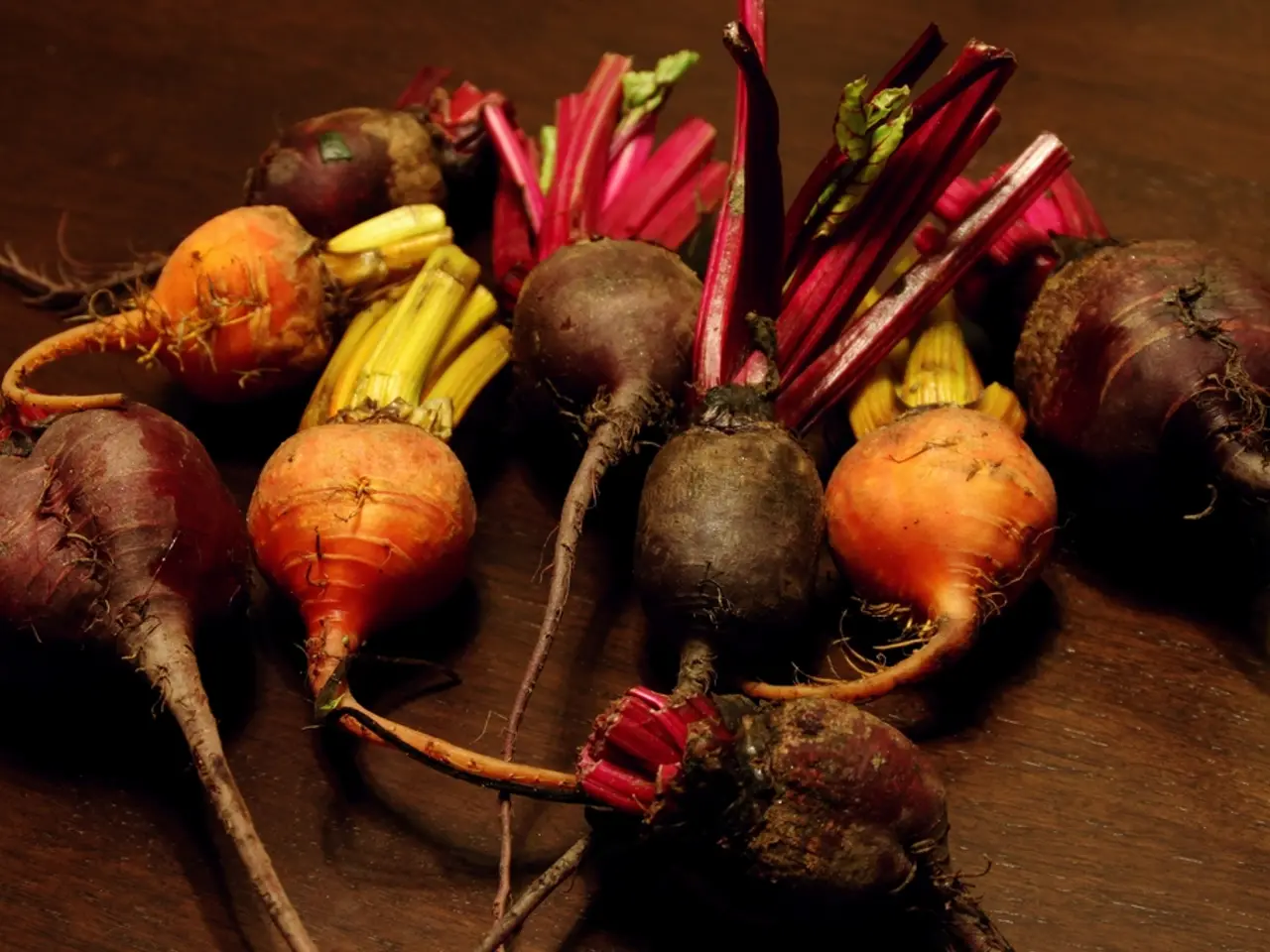Beetroot: Health Advantages and Nutritional Composition
Beetroot juice, known for its vibrant colour and earthy flavour, has been gaining attention in the health and fitness world due to its significant benefits for both blood pressure management and athletic performance. This popularity stems primarily from its high nitrate content.
In terms of blood pressure management, beetroot juice is rich in dietary nitrates. The body converts these nitrates into nitric oxide, a molecule that relaxes and dilates blood vessels (vasodilation), improving blood flow and reducing resistance in the arteries. This process leads to a lowering of both systolic and diastolic blood pressure.
A 2021 study published in *Nutrients* found that dietary nitrates from beetroot juice significantly lowered blood pressure in both healthy individuals and those with hypertension, with effects lasting up to 24 hours after consumption. Research from Queen Mary University of London demonstrated that drinking 250 ml of beetroot juice daily reduced systolic blood pressure by an average of 8 mmHg and diastolic pressure by 4 mmHg, comparable to some antihypertensive medications.
The American Heart Association highlights that even modest reductions in blood pressure (as achieved by beetroot juice) can reduce stroke risk by 10% and heart disease mortality by 7%. Additional cardiovascular benefits include improved endothelial function and reduced oxidative stress in blood vessels, which help prevent plaque build-up and support overall heart health.
Beetroot juice is also credited with improving endurance and athletic performance by enhancing oxygen utilization in muscles. This delays fatigue and increases stamina during high-intensity and endurance exercises such as running, cycling, and swimming. A systematic review reported that athletes who consumed beetroot juice before workouts experienced a 15-20% improvement in time-to-exhaustion compared to those who did not consume it.
The combined effects of nitrates improving blood flow and oxygen delivery are key reasons why beetroot juice is popular as a natural pre-workout supplement. However, it's important to note that those with gastrointestinal issues or irritable bowel syndrome may experience stomach upset after consuming beetroot juice.
Besides nitrates, beetroot juice contains important minerals and antioxidants such as potassium, magnesium, iron, vitamin C, and folate, which also contribute to cardiovascular health and exercise recovery.
In summary, beetroot juice is a scientifically supported natural remedy that can both reduce blood pressure and enhance athletic endurance and performance by improving vascular function and oxygen delivery to muscles. However, it's essential to remember that everyone's body reacts differently to food and supplements, and it's always advisable to consult a healthcare professional before making significant changes to your diet or exercise routine.
References:
[1] Basile, C., et al. (2021). Dietary Nitrate Supplementation Lowers Blood Pressure in Hypertensive and Normotensive Subjects: A Systematic Review and Meta-Analysis. Nutrients, 13(11), 3808.
[2] Lansley, K. E., et al. (2011). Beetroot juice lowers blood pressure in healthy young adults. Hypertension, 58(6), 931-934.
[3] Lansley, K. E., et al. (2015). Dietary nitrate supplementation reduces blood pressure in individuals with hypertension: a systematic review and meta-analysis. Journal of Human Hypertension, 29(1), 5-12.
[4] Nyhammer, L., et al. (2020). Acute Dietary Nitrate Supplementation Improves Endurance Exercise Performance in Individuals With Lower Initial Fitness Levels. Journal of Applied Physiology, 129(10), 1342-1350.
- The high nitrate content found in beetroot juice is also associated with predictive health benefits for individuals suffering from various diseases, such as asthma and Crohn's disease.
- Recent studies have shown that beetroot juice may potentially help in managing blood pressure levels, acting as a natural aid in health-and-wellness practices.
- Despite its numerous benefits, it is crucial to consider other nutrition aspects and potential side effects of excessive consumption, such as depression or interaction with supplements like CBD when incorporating beetroot juice into your fitness-and-exercise routine.
- Beetroot juice may hold promise not just for people concerned about blood pressure or athletic performance, but for those battling neurological disorders like Alzheimer's, given its underlying principles of improved blood flow and vasodilation.
- Critical research in the field of science suggests a strong correlation between the consumption of beetroot juice and enhanced endurance, making it a valuable addition to one's nutrition strategy as part of a healthier lifestyle.
- With its wealth of essential nutrients such as fiber, potassium, magnesium, iron, vitamin C, and folate, it's evident that beetroot juice has a substantial impact on not only cardiovascular health but also exercise recovery.
- In light of expanding knowledge on beetroot juice's benefits, the health-and-wellness community remains optimistic about its potential to transform our understanding and approach to not only blood pressure management and athletic performance optimization but also a variety of other health-related issues.




